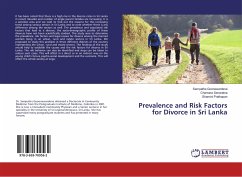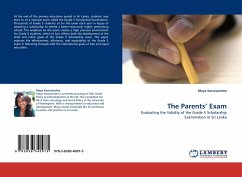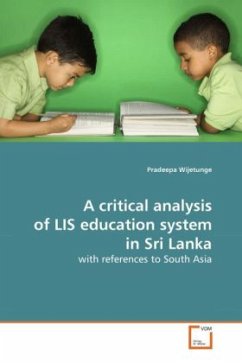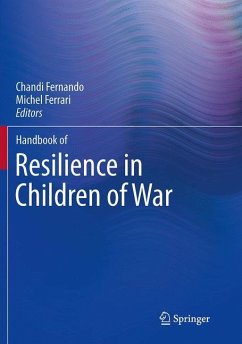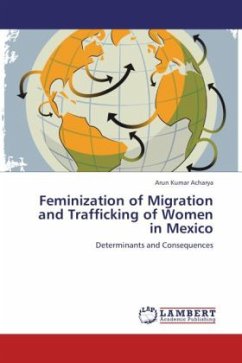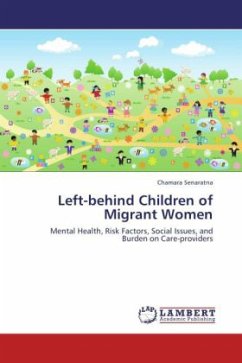
Left-behind Children of Migrant Women
Mental Health, Risk Factors, Social Issues, and Burden on Care-providers
Versandkostenfrei!
Versandfertig in 6-10 Tagen
52,99 €
inkl. MwSt.

PAYBACK Punkte
26 °P sammeln!
Labour migration shows an increasing trend worldwide. Despite its economic rewards, migrants and their families in disadvantaged communities are overwhelmed by its undesirable effects. Migration of women affects family functioning and cohesion, and leaves children in paternal or kinship care. These children are believed to be neglected and abused. Studies comprehensively enumerating psycho-social effects of mothers migration on children are scarce. Using a strong mix of quantitative and qualitative epidemiological study designs and an array of data collection techniques, this work examines psy...
Labour migration shows an increasing trend worldwide. Despite its economic rewards, migrants and their families in disadvantaged communities are overwhelmed by its undesirable effects. Migration of women affects family functioning and cohesion, and leaves children in paternal or kinship care. These children are believed to be neglected and abused. Studies comprehensively enumerating psycho-social effects of mothers migration on children are scarce. Using a strong mix of quantitative and qualitative epidemiological study designs and an array of data collection techniques, this work examines psychological effects of mothers migration on children, risk factors for mental health problems, and a variety of other adversities faced by them. Burden on mother-substitutes are also discussed. It draws attention to hitherto under-reported complexity of web of interconnected factors that retain migrants and their children in the same disadvantaged socio-economic cycles and highlights the needfor evidence-based, multi-disciplinary, and multi-stakeholder approach in interventions. This book is useful reading for academics, researchers, social and health workers, and policy-makers alike.



